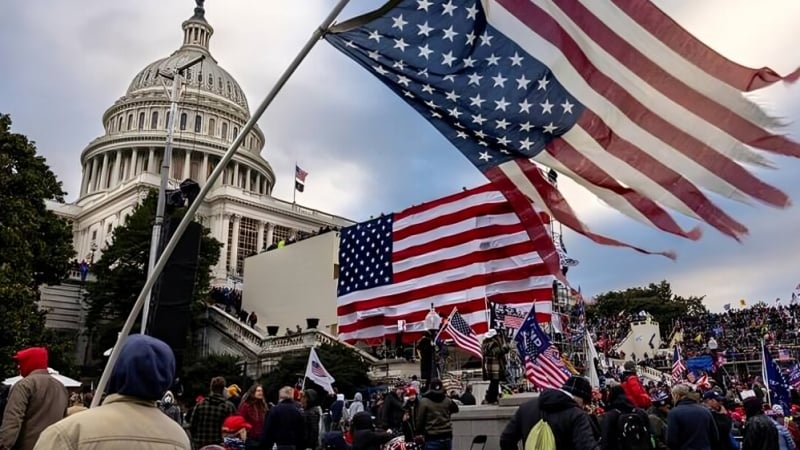U.S. a democracy or republic of billionaires?
-

U.S. a democracy or republic of billionaires?
Pars Today – While a century ago only 0.25% of U.S. election funding came from the pockets of 100 wealthy individuals, today one dollar out of every thirteen spent on federal elections comes directly from billionaires’ accounts—a development that The Washington Post has described as “the capture of American politics by billionaires.”
In recent years, the United States has witnessed profound changes in its political power structure, with ultra-wealthy individuals playing a central role. An article in The Washington Post titled “How Billionaires Captured American Politics” examines this phenomenon and, citing precise statistics, shows how the concentration of wealth in the hands of a small minority has challenged American democracy. Based on electoral and economic data, the article presents a picture of a political system in which financial influence extends not only to elections but also to policymaking and even government appointments.
According to The Washington Post data, the 100 wealthiest Americans in 2000 contributed only 0.25% of total federal election spending—about $46 million. By 2024, this figure had jumped to 7.5%, exceeding $1.1 billion.
The average annual contributions of this group in the 2000–2010 decade were about $21 million, but in the past decade, this figure steadily increased, reaching its peak in 2024. This growth far outpaces the overall rise in election spending and reflects the parties’ increasing dependence on billionaires. In fact, one dollar out of every thirteen spent in elections is funded by America’s wealthiest individuals. This influence is not only financial but also ideological and structural.
In 2024, more than 80% of the contributions from the 100 wealthiest individuals went to Republicans or conservative groups—a striking shift compared to 2020, when tech and finance billionaires had given $186 million more to the Democrats. Elon Musk, the world’s richest man, alone donated $294 million to Trump and the Republican Party in the presidential election, while securing his $1 trillion compensation package at Tesla.
Statistics indicate that this influence has its roots in structural changes. Since 2010, court rulings such as Citizens United v. Federal Election Commission have allowed unions and corporations to spend without limits, turning super PACs into powerful tools. As a result, since 2015, at least 44 billionaires or their spouses have attained state or federal positions.
At the inauguration ceremony of Trump’s second presidential term, 17 billionaires with combined assets exceeding $1 trillion were present, including Elon Musk, Jeff Bezos, Mark Zuckerberg, Bernard Arnault, Tim Cook, and Rupert Murdoch.
Trump’s cabinet, with a net worth of $7.5 billion, is the wealthiest in U.S. history and includes several billionaires. From a historical perspective, this situation is reminiscent of the Gilded Age, when wealth was concentrated in the hands of a small minority.
Today, 902 American billionaires hold over $6.7 trillion in assets—double the inflation-adjusted amount from a decade ago. This concentration is the result of the tech revolution, rising executive pay, and tax cuts under both parties. Trump promised to fight the elites in 2016, but by his second presidential term, billionaires had openly gained influence over the White House.
The result of this trend is a collapse of public trust in legal institutions in the United States. A 2024 Washington Post-Ipsos poll showed that the majority consider the increasing billionaire spending in elections to be “very bad,” with only 12% acknowledging any positive impact. This situation is pushing American democracy toward oligarchic rule.
Billionaire influence in politics not only makes elections in the U.S. more expensive and unequal but also shapes policies to benefit a small elite. In 2024, Trump raised 15 times more money from wealthy donors than in 2016, while Kamala Harris raised three times more than Hillary Clinton did in 2016. If this trend is not curbed through fundamental reforms, including restrictions on super PACs, the United States is likely to become increasingly a “Republic of Billionaires.”


